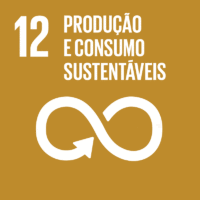Ciência_Iscte
Comunicações
Descrição Detalhada da Comunicação
[Spatiality:] A Constelation for Doing
Título Evento
The DAN conference 2024: REACHING OUT - participatory and engaged research for change
Ano (publicação definitiva)
2024
Língua
Inglês
País
Dinamarca
Mais Informação
--
Web of Science®
Esta publicação não está indexada na Web of Science®
Scopus
Esta publicação não está indexada na Scopus
Google Scholar
Esta publicação não está indexada no Google Scholar
Esta publicação não está indexada no Overton
Abstract/Resumo
"to supply a production apparatus without trying, withing the limits of the possibe, to change it, is a highly disputable activity even when the material supplied appears to be of a revolutionary nature" Walter Benjamin, The Author as Producer;
Vila Real de Santo António (VRSA) is a small town of 10k inhabitants in the southeast corner of Portugal. It was developed in a very specific environmental, historical and architectonic context and went through diverse challenging social, political and economic processes. Once a contested and lively social, political and cultural place, it is now surrounded by generic construction, with very few citizen-led activities - and the city hall has gone bankrupt a few years ago. In the last two decades, different groups of foreigners settled here at different times, most recently higher class retired citizens from the European Union and precarious workers from South Asia. This, at a time when the region, that has long suffered from chronical effects of seasonal tourism, experiences one of Portugal's highest levels of vote abstention and of extreme-right electoral success.
For over 10 years, I have been intervening and experimenting in VRSA, asking myself how I can, as a citizen, architect, activist, researcher, politician... contribute to transform the direction my hometown is heading to. And thinking about which worlds I am contributing to with each action.
Now, through the PhD research, I am in the process of figuring out:
- how spatial knowledge, collectively developed, can be of use to (not only but mainly) lay inhabitants for a more conscious and creative spatial action - and to improve relations and connections between diverse people, their wills, their memories and this place, leading to a more discussed, democratic, co-imagined and co-produced space;
- and how their (spatial) knowledges and perspectives can, in turn, influence the practice and ways of doing and understanding architecture - and (spatial) research.
Considering that the way we do things should be in consonance with our objectives, I present in this paper a constellation for doing - i.e. a methodological framework - that is guiding (the start of) this research. Three elements are setting the tone: Social Construction and Constructivist Grounded Theory (through the works Design Thinking & Social Construction [Camargo-Borges & McNamee, 2022] and Situational Analysis: Grounded Theory after the Interpretive Turn [Clarke et al, 2017]) and Participatory Action Research itself. Along with these elements, diverse methods from different disciplines are interplaying: ethnography; qualitative arts-based, spatial, creative and visual research methods; and methods for architecture, urban design and other spatial practices.
Preliminary findings of the first on-site research-phase [phase 0] will also be presented. Phase 0 has the aim of testing methods and generating material and discussion that can be used to both finetune the research as a whole (with questions about subjective perceptions on motivation, participation, space, action and the usefulness of memory and creativity) and decide some aspects for the next on-site research-phase [phase 1], including the participants' target profile and the methods to be experimented.
Agradecimentos/Acknowledgements
Marta Setúbal acknowledges the support of the Foundation for Science and Technology (FCT,
Portugal) through the scholarship with the reference 2023.01425.BD, and through
DINÂMIA'CET-Iscte (project UIDP/03127/2020)
Palavras-chave
Spatial research,Action research,Constructivist Grounded Theory,Situational Analysis,Social Constructionism,Methodologies
Classificação Fields of Science and Technology
- Outras Ciências Sociais - Ciências Sociais
- Artes - Humanidades
- Outras Humanidades - Humanidades
Registos de financiamentos
| Referência de financiamento | Entidade Financiadora |
|---|---|
| 2023.01425.BD | FCT |
| UIDP/03127/2020 | DINÂMIA'CET-Iscte |
Contribuições para os Objetivos do Desenvolvimento Sustentável das Nações Unidas
Com o objetivo de aumentar a investigação direcionada para o cumprimento dos Objetivos do Desenvolvimento Sustentável para 2030 das Nações Unidas, é disponibilizada no Ciência_Iscte a possibilidade de associação, quando aplicável, dos artigos científicos aos Objetivos do Desenvolvimento Sustentável. Estes são os Objetivos do Desenvolvimento Sustentável identificados pelo(s) autor(es) para esta publicação. Para uma informação detalhada dos Objetivos do Desenvolvimento Sustentável, clique aqui.

 English
English




